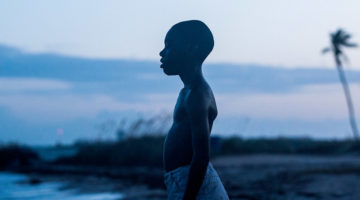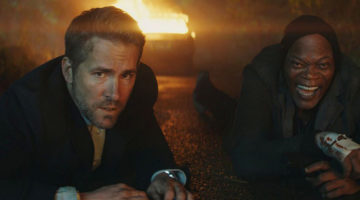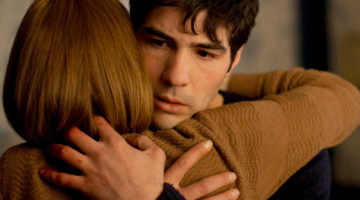Review: The DUFF
There is indeed a thoughtful, positive message in The DUFF; it’s just buried under a lot of generic convention and casual sexism. Presenting a version of what the current high school caste system is like, The DUFF, which refers to an incendiary designation among friends, tries to subvert labels while embracing them, and never seems to know if it wants to keep its sexual diversions closer to Mean Girls (PG-13) or American Pie (R).
It would seem the latter when we open on a trio of high school girl walking the halls, the first two of which are very clearly desired in bed by some male classmates. But this film from Ari Sandel, making his feature directorial debut, tells you quickly that in addition to being attractive, Casey and Jess also do well in extracurricular. See, people can be layered!
So there is that idiotic declaration, telling the audience that jocks can be funny and nerds can be cool. In fact, that’s the move of The DUFF. It prefers to tell first and then show, but even then the two don’t always meet.
The third girl in that initial trio is Bianca (Mae Whitman), our narrator on this journey of self-confidence and discovery, one who wears overalls and flannels and isn’t nearly as attractive as her best friends. For reasons unknown, she suddenly questions the entirety of her friendships when attractive jock Wesley (Robbie Amell) informs her that she is her triad’s Designated Ugly Fat Friend.
Bianca goes off the rails, disowns the girls, and in a recycled storyline, plots to become more popular with the help, of course, of Mr. Popular. All the while we are being told that this isn’t standard fare; that things in high school in this decade are different than the past (The DUFF doesn’t come close to being as smart and funny as Mean Girls, by the way). This is despite there being the token vapid Plastic (Bella Thorne), who bullies Bianca and demeans Wesley, her on and off again boyfriend.
The Duff doesn’t care about nuances though, which could be forgivable if anything that transpired was the least bit novel or heartfelt. Both leads possess some great charm and offer genuinely hilarious moments, but there is such an inconsistency in the jokes, the mood, and the story that the random parts destroy the whole.
Sometimes it seems the goal of these teens is to make out; other times it seems the goal is sex, which like any other issue of some gravity, is trivialized. When Bianca is spied on in an embarrassing moment and a video circulates through the school, a principal is shown being inept and more or less careless about cyber bullying. In a most offensive instance, a teacher comments on how hot a girl is, and the punch line apparently comes when a colleague says, ‘she’s 15.’ And yes, people laughed.
For some reason that is supposed to be funny. Alison Janney, in the role of Bianca’s single-and-loving-it mother, along with Ken Jeong as an actually dedicated teacher, brings the story back from the brink time and again despite also being generalizations.
It wants to be different so badly, and in creating stereotypes and clichés, by relying on the most base of sexual jokes and characterization, The DUFF only masquerades as something noteworthy.
[star v=2]








